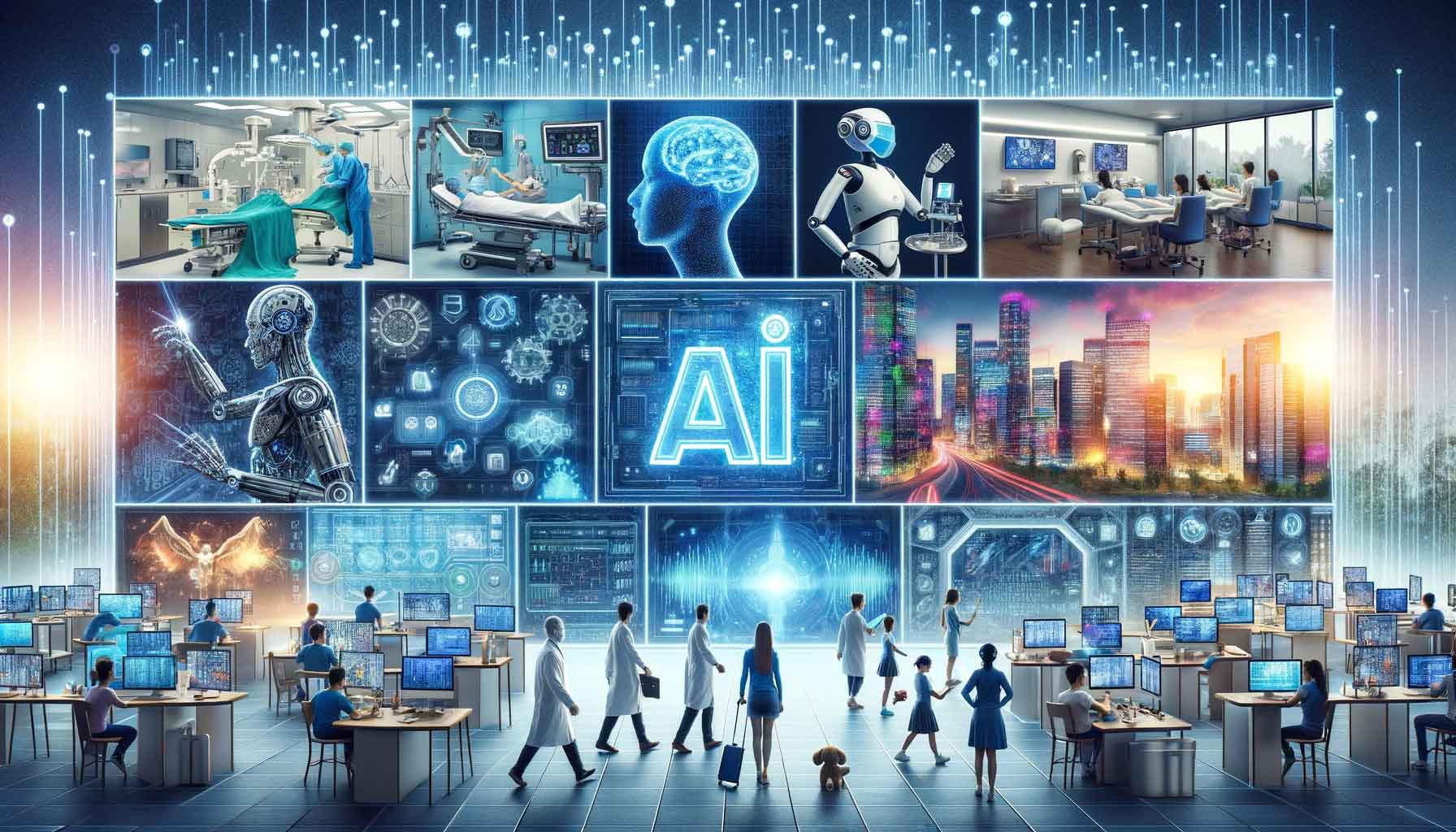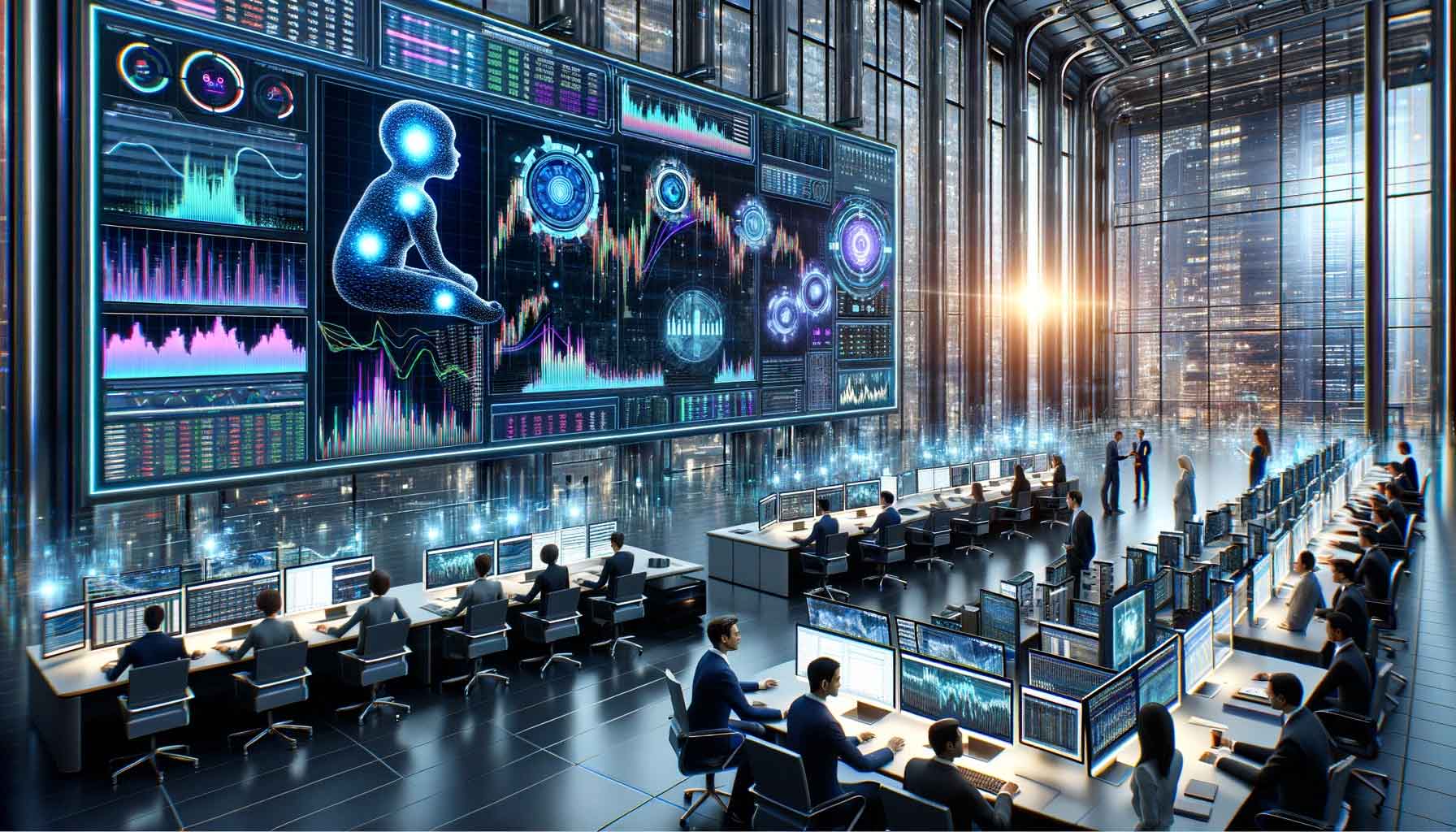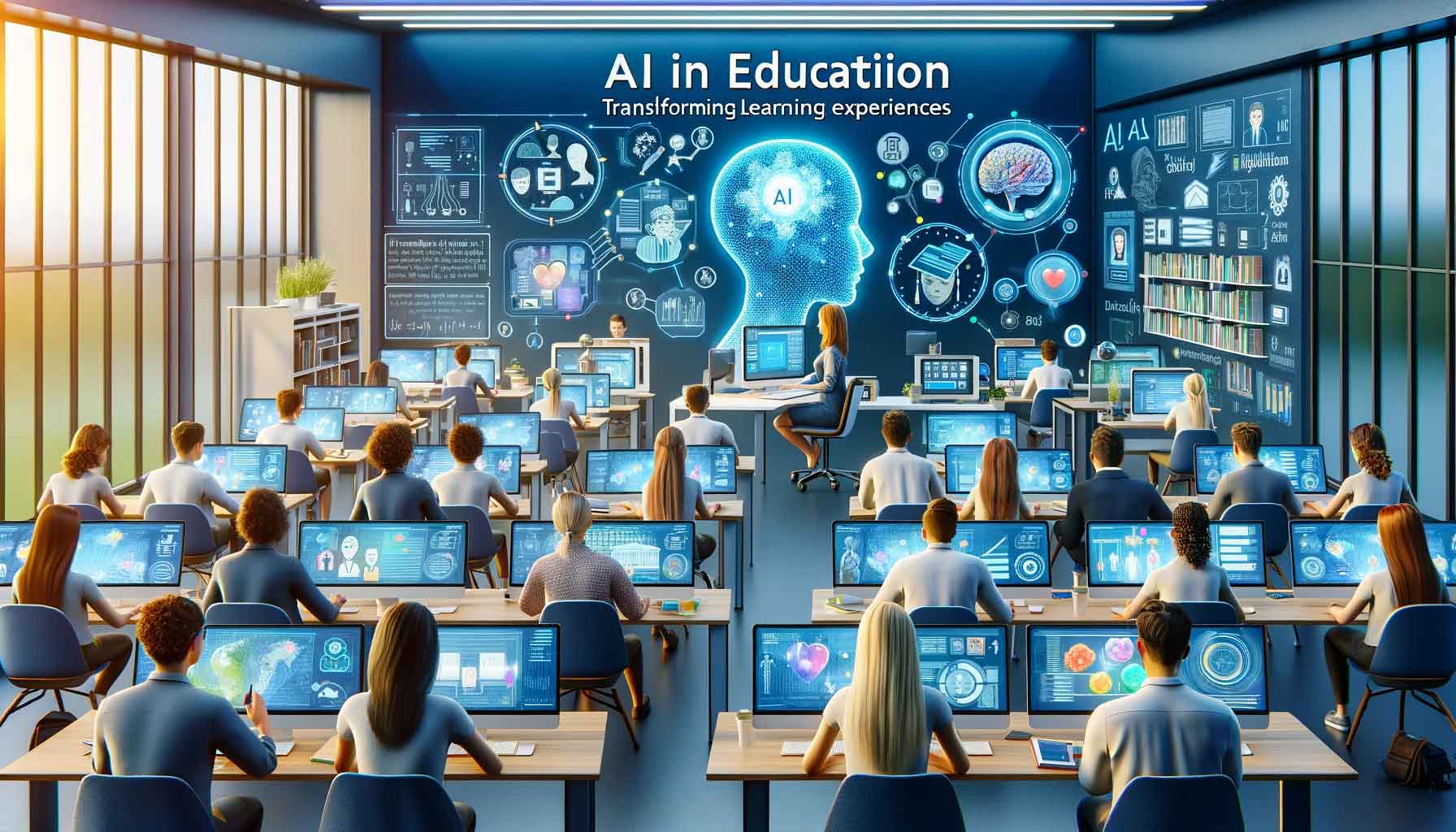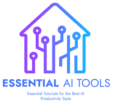AI in Different Industries: Uncovering the Transformation

Welcome to the exciting world of AI! Artificial Intelligence (AI) has been making waves in different industries, transforming the way things are done. From healthcare to transportation, AI is reshaping the landscape for these industries and creating unprecedented opportunities for businesses worldwide.
AI has found its place in various industries, and with it, new horizons for innovation and growth. Explore how AI is transforming various industries, including healthcare, finance, manufacturing, retail, transportation, and education. Get ready to discover the fascinating ways in which AI technology is changing the way things are done in different sectors.
Click here to see the most productive AI Tools
Key Takeaways
- AI is transforming different industries, generating new opportunities for businesses worldwide.
- AI is reshaping the way things are done in healthcare, finance, manufacturing, retail, transportation, and education.
- Businesses that leverage AI technologies can expect to experience unparalleled growth and innovation.
- AI presents both challenges and opportunities, shaping the future of industries in the United States and beyond.
AI in Healthcare: Revolutionizing the Medical Field

The healthcare industry has always been at the forefront of innovation, and the incorporation of AI technologies is no exception. AI is revolutionizing the medical field, enhancing the way medical professionals diagnose diseases and treat patients. With the power of AI, healthcare providers can now offer more personalized care, predict patient outcomes, and manage medical resources more efficiently.
One of the most significant applications of AI in healthcare is in medical imaging. AI-powered systems can recognize patterns and anomalies in medical images with greater accuracy than humans, enabling faster and more accurate diagnoses. Additionally, AI algorithms can help identify early-stage diseases, making treatment more effective and reducing the risk of complications.
| Applications of AI in Healthcare | Benefits |
|---|---|
| Medical Imaging | Accurate and faster diagnoses |
| Predictive Analytics | Anticipates patient outcomes for better decision-making |
| Drug Discovery | Accelerated drug development and personalized medicine |
| Patient Monitoring | Real-time monitoring and early warning systems |
AI is also driving innovation in drug discovery, enabling faster and more efficient development of new treatments. With AI, researchers can analyze large amounts of data to identify promising drug candidates and predict how patients will respond to them. This approach not only speeds up the development process but also leads to more personalized treatment plans for patients.
Another significant benefit of AI in healthcare is in patient monitoring. Real-time monitoring and early warning systems can detect and alert medical professionals of potential health risks, enabling early intervention and preventing adverse events.
Overall, AI is transforming the healthcare industry, enabling medical professionals to provide better care, improve patient outcomes, and optimize medical resources. As the technology continues to evolve, we can expect even more exciting developments in the coming years.
AI in Finance: Enhancing Efficiency and Decision-making

The financial industry is undoubtedly one of the most data-driven sectors, which makes it an ideal candidate for AI integration. With the advent of AI in finance, businesses can boost efficiency, make sound decisions, and deliver personalized services to clients. AI in finance encompasses a range of applications, from chatbots providing customer service to predictive analytics driving investment decisions.
AI in Algorithmic Trading
AI has revolutionized the way algorithmic trading works, enabling traders to make quick, data-driven decisions based on market trends. AI algorithms can harness massive amounts of data to analyze market trends and make predictions in real-time. These predictions can be used to improve trading strategies and reduce risks, giving financial institutions a competitive edge.
AI in Fraud Detection
AI technology has also been instrumental in improving fraud detection and prevention in the financial industry. By using machine learning algorithms, businesses can detect fraudulent activities and mitigate risks more effectively. These algorithms can analyze patterns in data and detect anomalies that may indicate fraudulent behavior. This helps institutions protect their clients’ assets and reputation.
AI in Customer Service
AI-powered chatbots and virtual assistants are enhancing customer service in the financial sector. Chatbots can be integrated into mobile banking apps, providing customers with instant assistance and personalized recommendations. Virtual assistants can also provide 24/7 services to customers, improving accessibility and convenience.
Check out This AI-Powered Sales Rep
AI in Personalized Financial Advice
AI is also revolutionizing the way financial advisors provide services to clients. By using machine learning algorithms, advisors can analyze large amounts of data to provide personalized investment advice. This improves the accuracy of investment decisions and helps clients achieve their financial goals.
In conclusion, AI is transforming the financial industry by enhancing efficiency, mitigating risks, and improving customer services. The integration of AI in finance has the potential to revolutionize the way businesses operate, enabling them to make data-driven decisions and deliver personalized services to clients. As AI continues to evolve, we can expect to see even more groundbreaking applications in the financial industry.
AI in Manufacturing: Optimizing Production and Quality
The manufacturing industry is constantly evolving, and the integration of AI technologies has further optimized production processes and improved product quality. AI-driven systems are being used in predictive maintenance, demand forecasting, quality control, and robotics, bringing significant benefits to manufacturers.
Streamlining production processes
AI is being used to streamline production processes, reduce waste and improve efficiency. These systems help manufacturers automate routine tasks and increase the speed of manufacturing processes. They can reduce production times, improve accuracy, and lower costs while minimizing errors in the production process.
Optimizing supply chain management
AI-powered systems are being used to optimize supply chain management, enabling manufacturers to quickly respond to changing market conditions and reduce costs. Predictive analytics helps minimize inventory levels while ensuring that raw materials and finished products are available when needed. This helps reduce storage costs, increase efficiency and improve inventory management.
Improving product quality
AI is being used to improve product quality by ensuring that products meet strict quality standards. Quality control systems use AI-powered image analysis to identify defects and errors in products. By using AI in quality control, manufacturers can reduce the need for human intervention, improve accuracy, and increase the speed of the production process.
| Application | Benefits |
|---|---|
| Predictive maintenance | Reduces downtime, increases equipment lifespan, and lowers maintenance costs |
| Demand forecasting | Improves inventory management, reduces costs, enhances supply chain management |
| Quality control | Ensures consistency and accuracy, reduces errors, increases efficiency |
| Robotics | Increases efficiency, reduces costs, enables high-speed and precision manufacturing |
“AI is revolutionizing the manufacturing industry, bringing significant benefits and driving innovation. From streamlining production processes to improving product quality, AI-powered systems are transforming the manufacturing landscape.”
AI in Retail: Elevating Customer Experiences

Retail companies are constantly looking for innovative ways to offer personalized shopping experiences to their customers. AI-powered systems are now enabling retail stores to provide customized recommendations based on their customers’ preferences, behaviors, and purchase history.
AI is also helping retailers optimize their inventory management, ensuring that they have the right stock at the right time. This includes real-time tracking of inventory levels and predicting consumer demand, ensuring that retailers can always meet their customers’ needs.
Another innovative application of AI in retail is the use of virtual try-on. With the help of AI technology, customers can now try on clothes virtually and get an accurate representation of how the clothes will fit and look on them.
“AI is reshaping the retail landscape and meeting the evolving expectations of tech-savvy consumers.”
Moreover, AI-powered chatbots and virtual assistants are now able to deliver exceptional customer service by assisting customers with their queries and complaints in real-time. This innovative technology is changing the way retailers interact with their customers and is enhancing the overall shopping experience.
The Impact of AI in Retail: Key Takeaways
- AI is transforming retail by providing personalized recommendations and virtual try-on experiences.
- AI is optimizing inventory management, ensuring retailers always have the right stock at the right time.
- AI-powered chatbots and virtual assistants are delivering exceptional customer service.
AI in Transportation: Driving Innovation and Safety
The transportation industry is undergoing a significant transformation with the integration of AI technologies. AI is revolutionizing the way traffic is managed, routes are optimized, and vehicles are controlled, thereby enhancing safety and promoting sustainable practices. The impact of AI in transportation is a fascinating area to explore and understand.
The Use of AI in Autonomous Vehicles
AI is a critical technology for the development of autonomous vehicles. Autonomous vehicles rely on sensors and data analysis to make driving decisions, and AI technologies play a crucial role in processing and interpreting this data. Machine learning and deep learning algorithms enable autonomous vehicles to detect and respond to their surroundings, from recognizing traffic patterns to predicting the behavior of other road users. In turn, this has the potential to make transportation safer, more efficient, and accessible to all.
A Data-Driven Traffic Management System
AI is also transforming traffic management systems by enabling real-time data analysis and decision-making. Traffic management systems that utilize AI technologies can optimize traffic flow, reduce congestion, and improve commuting times. AI-powered traffic management systems can provide real-time information about road conditions, accidents, and traffic patterns, enabling traffic managers to respond quickly to incidents and reroute traffic as needed. In addition, AI can be used to predict traffic patterns, estimate travel times, and optimize routes, thereby providing a more efficient and effective transportation system.
Predictive Maintenance and Transportation Efficiency
AI is transforming the transportation industry by providing predictive maintenance solutions that optimize maintenance schedules and reduce downtime. Predictive maintenance utilizes machine learning algorithms to analyze data from sensors and other sources to detect issues before they cause significant damage. Predictive maintenance is particularly useful in the transportation industry, where vehicle downtime can have a significant impact on profitability and customer satisfaction. With AI-enabled predictive maintenance, transportation companies can reduce maintenance costs, extend the lifespan of their vehicles, and improve their overall efficiency.
| Benefits of AI in Transportation | |
|---|---|
| 1 | Enhanced Safety |
| 2 | Improved Efficiency |
| 3 | Promotes Sustainable Practices |
| 4 | Optimized Traffic Management Systems |
| 5 | Predictive Maintenance Improves Transportation Efficiency |
“The transportation industry is witnessing an exciting transformation with the integration of AI technologies. From optimizing traffic management systems to enabling predictive maintenance, AI is revolutionizing the way transportation companies operate and providing safer, more efficient, and sustainable transportation for all.”
AI in Education: Transforming Learning Experiences

The education sector is witnessing a remarkable transformation with the integration of AI technologies. From personalized learning experiences to administrative automation, AI is revolutionizing the way we approach education. Let’s dive into the fascinating ways in which AI is transforming the education industry.
Adaptive Learning
AI-powered platforms are facilitating adaptive learning, enabling educators to personalize the learning experience for each student. The algorithms can analyze each student’s strengths and weaknesses and create a customized learning experience based on their individual needs. This approach can significantly improve student outcomes and ensure that no one is left behind.
Intelligent Tutoring
AI-based tutoring systems are providing students with personalized instruction, feedback and assessment. These systems can help identify knowledge gaps, provide targeted feedback, and suggest learning resources based on the student’s needs. With intelligent tutoring, students can receive tailored support that will enable them to master challenging skills and concepts more efficiently.
Plagiarism Detection
AI-powered plagiarism detection systems can accurately identify copied content in student submissions. These tools can be instrumental in ensuring academic integrity and preventing cheating in schools and universities. Plagiarism detection software can identify similarities in writing styles, patterns, and vocabulary to alert educators to potential plagiarism.
Student Performance Analysis
AI-powered analytics tools can provide teachers with insights into student performance that can inform their approach to teaching. These tools can identify trends in student performance, highlight areas where students need more support, and suggest learning strategies that are most effective. With this information, teachers can tailor their approaches and provide support where it is needed most.
The potential of AI to transform education is vast. AI-powered systems can provide individualized support and feedback to students, ensuring that they receive the education they need to succeed. As AI continues to develop, it will be interesting to see how it continues to shape the future of education.
AI Impact on Industries: Present and Future Outlook
Artificial intelligence (AI) is rapidly transforming different industries, revolutionizing traditional processes, and enhancing outcomes. Today, AI is prevalent in healthcare, finance, manufacturing, retail, transportation, and education sectors. The positive impact of AI on industries is increasingly evident, with businesses worldwide leveraging AI technologies to drive innovation and growth.
The potential of AI to change the way industries operate is limitless. Research suggests that the global AI market size will reach $267 billion by 2027, indicating the widespread adoption of AI technologies across industries.
Essential AI tools for your business
Applications of AI in Different Industries
The integration of AI technologies in different industries has brought about numerous benefits. In healthcare, AI-powered systems are improving medical imaging, drug discovery, and personalized treatment plans. In finance, AI is being used in algorithmic trading, fraud detection, and personalized financial advice. In manufacturing, AI is optimizing production processes and improving product quality, while in retail, AI is providing personalized shopping experiences and optimizing inventory management.
In transportation, AI is promoting sustainable practices, and in education, AI is personalizing learning experiences and automating administrative tasks. From predicting patient outcomes to enabling targeted marketing campaigns, the potential of AI to transform different industries is vast and varied.
Impact of AI on Industries
The impact of AI on industries is significant, with businesses leveraging AI technologies to reduce costs, increase efficiency, and improve customer experiences. AI is enabling data-driven decision-making, automating complex processes, and enhancing existing systems. According to research by McKinsey, AI adoption has the potential to increase productivity by up to 40% in some industries.
The widespread adoption of AI technologies is also creating new jobs and changing the way people work. Industries are transitioning towards a more streamlined and efficient work culture, with AI technologies handling repetitive and mundane tasks, allowing employees to focus on strategic tasks.
Future Outlook for Industries
As AI continues to evolve, businesses must keep up with the latest developments to stay ahead of the curve. The future outlook for industries is promising, with AI technologies expected to drive innovation, improve processes, and increase efficiency across sectors. However, the adoption of AI technologies also presents challenges, such as ethical concerns and the need for upskilling employees.
Businesses must stay up-to-date with the latest AI developments and invest in AI technologies to remain competitive. With the power to transform industries and revolutionize traditional processes, AI is the future of businesses worldwide.

Conclusion
In conclusion, AI is transforming various industries, revolutionizing processes, and enhancing outcomes. The integration of AI technologies in healthcare is improving patient care, diagnosis, and treatment plans. AI is driving innovation and improving decision-making in the finance sector. In manufacturing, AI is streamlining production processes and optimizing supply chain management. Retail companies are leveraging AI to provide personalized shopping experiences, optimize inventory management, and enable targeted marketing campaigns. The transportation industry is embracing AI to enhance safety and promote sustainable practices. AI is personalizing learning experiences and improving educational outcomes in the education sector.
While the widespread adoption of AI technologies presents challenges, the potential benefits cannot be ignored. Industries that continue to leverage the power of AI will drive innovation, gain a competitive edge, and improve outcomes. As AI technology continues to evolve, it will shape the future of industries in the United States and beyond.
FAQ
What is the impact of AI on different industries?
AI is transforming various industries, revolutionizing processes, and enhancing outcomes. It is reshaping healthcare, finance, manufacturing, retail, transportation, and education by driving innovation and improving efficiency.
How is AI revolutionizing healthcare?
AI is revolutionizing healthcare by enhancing medical imaging, drug discovery, patient monitoring, and personalized treatment plans. It helps in diagnosing diseases, predicting patient outcomes, and providing better care.
How is AI being used in finance?
AI is being used in finance to automate processes, improve risk assessment, and enable data-driven decision-making. It is used in algorithmic trading, fraud detection, customer service, and personalized financial advice.
How is AI optimizing manufacturing processes?
AI is optimizing manufacturing processes by streamlining production, optimizing supply chain management, and improving product quality. It is used in predictive maintenance, demand forecasting, quality control, and robotics.
How is AI enhancing retail experiences?
AI is enhancing retail experiences by providing personalized shopping recommendations, optimizing inventory management, and enabling targeted marketing campaigns. It is used in recommendation systems, chatbots, virtual try-on, and cashier-less stores.
How is AI driving innovation in transportation?
AI is driving innovation in transportation by enhancing safety, optimizing logistics, and promoting sustainable practices. It is used in autonomous vehicles, traffic management, route optimization, and predictive maintenance.
How is AI transforming education?
AI is transforming education by personalizing learning experiences, automating administrative tasks, and improving educational outcomes. It is used in adaptive learning, intelligent tutoring, plagiarism detection, and student performance analysis.
What is the future outlook for the impact of AI on industries?
The future outlook for the impact of AI on industries is promising. As AI continues to evolve, industries will leverage its power to drive innovation and growth. However, challenges associated with AI implementation need to be addressed for its widespread adoption.



Pingback: The History of AI: A Historical Perspective, Tracing Its Development
Pingback: The Newest Trends in AI 2024 | Look At What's Shaping the Future